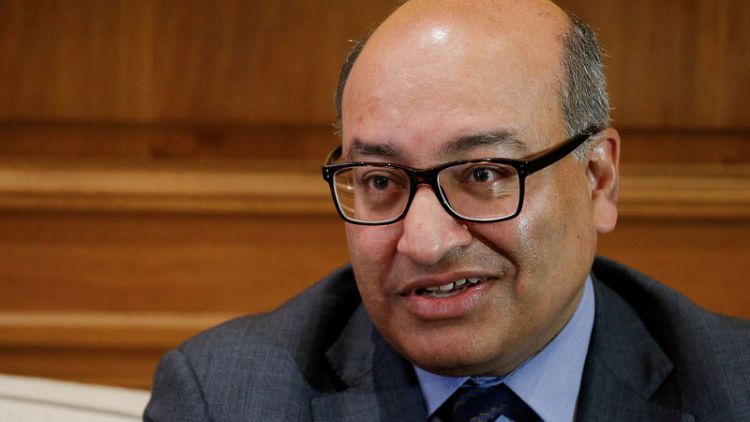ATHENS (Reuters) - The European Bank for Reconstruction and Development got shareholder approval to extend its mandate in Greece until 2025 to support the country's recovery from a debt crisis and deep recession, the EBRD said on Tuesday.
The extension will allow the bank to continue supporting the Greek private sector, improving competitiveness and strengthening the regional integration of the country's economy.
EBRD President Suma Chakrabarti told Reuters in March that the bank would ask its board of governors to approve extending its engagement in Greece by five years.
"With its investments and support for Greece so far, the EBRD has demonstrated its ability to respond quickly to the country's economic requirements," EBRD President Suma Chakrabarti said in a statement. "We are now ready to do more to support Greece in its economic recovery."
The EBRD began investing in Greece in 2015 on a temporary mandate that was initially due to run until 2020.
Set up by governments in 1991 to invest in the ex-communist economies of eastern Europe, the EBRD has expanded its mandate in the last decade and now operates in more than 30 countries.
The EBRD is owned by 69 countries from five continents, as well as by the European Union and the European Investment Bank.
To date, the bank has invested over 2 billion euros in more than 42 projects in Greece. Last year, business investment reached 614 million euros (546.26 million pounds), placing Greece among the top five countries of EBRD operations.
So far EBRD investments in Greece include equity stakes in the country's four big banks to stabilise the banking sector, participation in the modernisation of regional airports, and support to help banks resolve their high sour loans burden.
(Reporting by George Georgiopoulos; Editing by Mark Heinrich)



